




| Australian Pied Cormorant (Phalacrocorax varius (J.F. Gmelin, 1789)) |





|
|
Scientific name: Phalacrocorax varius (J.F. Gmelin, 1789) Common name: Australian Pied Cormorant Other names: Pied Cormorant, Pied Shag, Great Pied Cormorant. French name: Cormoran varié Order: Suliformes Family: Phalacrocoracidae Size: Body size: 65 to 85 cm; Weight: 1.3 to 2.2 kg; Wingspan: 110 to 130 cm. Habitat: Coastal areas, estuaries, bays and ports. Food: Mainly fish supplemented by a few molluscs and crustaceans caught by diving underwater. Nesting: The Australian Pied Cormorant nests in colonies of varying size, between 10 and 1000 birds. Nests are generally located in trees or bushes but also sometimes on the ground. There are usually 2 to 5 eggs per clutch. Migration: Sedentary, however the dispersal of the young can take place over long distances. Geographic area: Australia except desert areas, New Zealand. |
Adult Australian Pied Cormorants are essentially black above and white below: black from the top of the head, to the nape of the neck, on the back and wings and to the tail, contrasting with the white face, throat and sides of the neck , chest and belly. They have black legs and a grey bill with pinkish skin at its base. The eyes are green with a blue eye ring and the skin is yellow ahead of the eye. These colours are very bright in breeding plumage but become duller outside the breeding season. On juveniles, brown replaces black and mottled white replaces pure white. |
| [To know more about the Australian Pied Cormorant] [Next picture] [Top] |
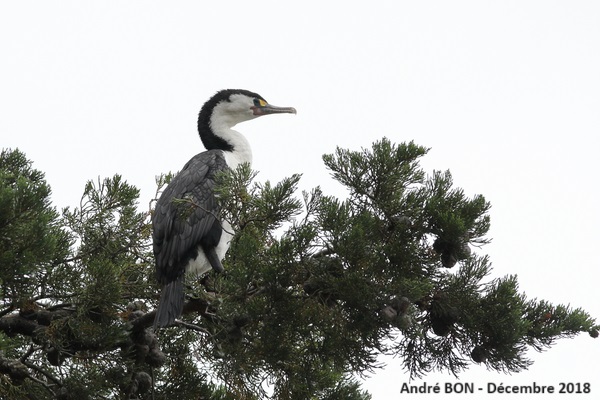
|
I observed this Cormorant at Robinsons Bay not far from Akaroa. We are in the crater of an ancient volcano and we hiked on the small Onawe peninsula located in the bay. |
| [To know more about the Australian Pied Cormorant] [Next picture] [Previous picture] [Top] |
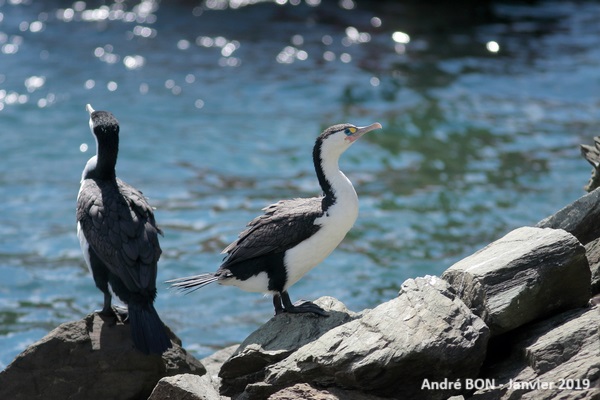
|
We observed these Australian Pied Cormorants in the port of Picton while waiting for the boat which will take us to the North Island. |
| [To know more about the Australian Pied Cormorant] [Next picture] [Previous picture] [Top] |
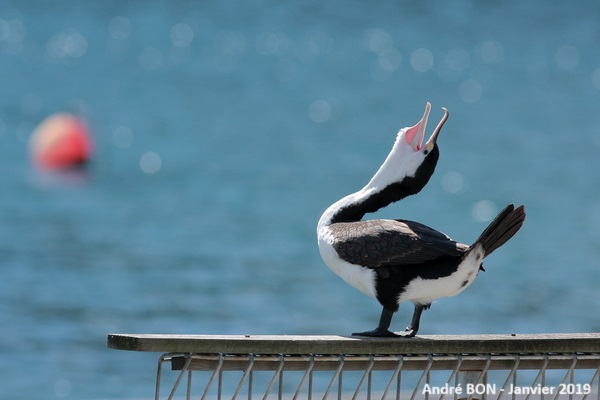
|
I don't know what this posture is about. Did this Cormorant just swallow a prey? |
| [To know more about the Australian Pied Cormorant] [Next picture] [Previous picture] [Top] |
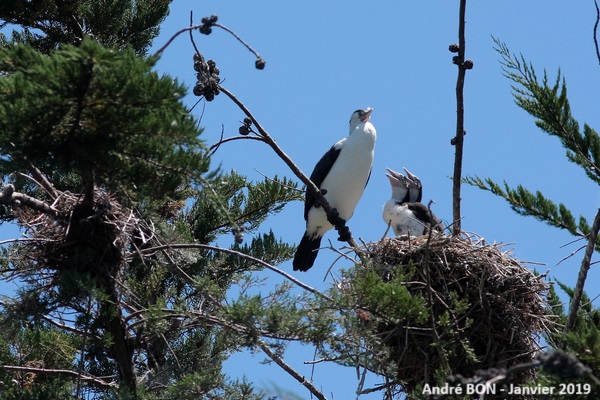
|
Juveniles in the nest. |
| [To know more about the Australian Pied Cormorant] [Previous picture] [Top] |
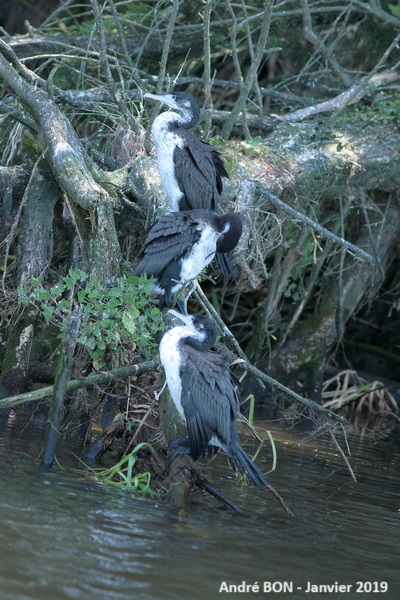
|
Other juveniles seen near the small colony. |